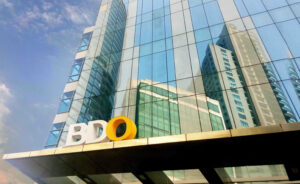THE ECONOMY is expected to stand out as a global outperformer due to strong domestic consumption and a young demographic, a BDO Unibank, Inc. official said.
BDO Investor Relations Group Senior Vice-President Dante Tinga, Jr. said in a statement on Wednesday that he is optimistic about the economic outlook despite global headwinds.
“The young, fast-growing population underpins its economic resilience. With half of its citizens aged 25 or younger and an annual population growth rate of 1.6%, domestic consumption has remained strong,” he said.
Household spending has surpassed pre-pandemic levels due to the recovery of overseas labor employment, leading to a stable flow of remittances.
“These inflows continue to strengthen the purchasing power of families, driving consumption-led growth,” BDO said.
Household consumption rose 5.1% in the third quarter, improving from 4.7% in the second quarter. Consumption accounts for over 70% of the economy.
BDO also sees economic growth bolstered by the easing cycle of central banks, including the Bangko Sentral ng Pilipinas (BSP).
With inflation settling within the central bank’s 2-4% target range, BDO sees the Monetary Board continuing to cut borrowing costs cautiously.
Headline inflation picked up to 2.9% in December from 2.5% in November due to higher utility and transport costs, still below the year-earlier 3.9% and within the central bank’s 2.3%-3.1% forecast.
As a result, full-year 2024 inflation averaged 3.2%, slowing from 6% in 2023 and marking the first time since 2021 that the consumer price index settled within the BSP’s 2-4% annual target. This also matched the central bank’s baseline forecast for the year.
“Stabilized rice prices, supported by government measures such as reduced import tariffs, have contributed to price stability. As a result, the BSP is expected to lower interest rates cautiously, creating a favorable environment for business investments and improved consumer confidence,” he said.
The Monetary Board has slashed benchmark borrowing costs by a total of 75 basis points (bps) since it began its easing cycle in August, bringing its policy rate to 5.75%.
Last month, BSP Governor Eli M. Remolona, Jr. said that while the BSP remains in an easing cycle, 100 bps worth of cuts this year may be “too much” amid inflation concerns. He added that the authorities will continue to bring down benchmark interest rates in “baby steps.”
Mr. Remolona added that the central bank is “neither more dovish nor less dovish” and is open to delivering another cut in its first policy meeting for this year, which is scheduled on Feb. 20.
The Federal Reserve’s own easing cycle is also expected to boost Philippine private-sector investment and business sentiment.
“Private capital expenditures remain subdued due to previously high interest rates, but with inflation now under control and rates set to decline, the outlook for private sector investment is improving,” the bank said.
However, economic growth may slow due to worries about US President-elect Donald J. Trump’s fiscal policies, which have also resulted in a stronger dollar, the bank said.
A stronger dollar would weigh on the peso and make imports costlier.
“Moreover, while the Philippines excels in services exports and benefits from significant remittance inflows, there is an urgent need to upskill the workforce to stay competitive in an increasingly digital global economy,” BDO said. — Aaron Michael C. Sy

